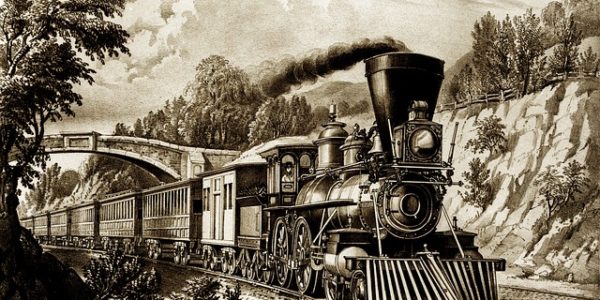Industry 4.0 – that’s what we’re calling this next big shift in industry. It’s the fourth chapter in the long and exciting story about man, machines, and manufacturing. There’s been a recurring theme throughout this story, and for many it’s the focus of Chapter 4. It’s the battle of man and machine. It’s the idea that automation will remove the need for human workers.
If this is the fourth Industrial Revolution, that means we have three other events to examine for clues about the fate of mankind and the human workforce. That is, of course, if the past is relevant to the future. So can history tell us how Industry 4.0 will affect employment?
A history of fearing automation
Ever since the steam engine was introduced during the First Industrial Revolution there have been those that fear automation. More specifically, they are concerned that increased levels of automation will render humans redundant, and ultimately cause mass unemployment.
Every time there was a new technological breakthrough that would revolutionize manufacturing and industry, the fear that humans would become unemployable grew.
From the steam engine to mass production and assembly lines to modern industrial robots, each Industrial Revolution seemed to herald the end of the human worker.
The creative human workforce
Fears of automation replacing the human workforce have existed since the first Industrial Revolution, and automation has yet to cause mass unemployment. Neither the steam engine nor the industrial robot have led to an unemployable worker.
Certain professions have taken a hit, but workers were displaced rather than made useless. Instead of hordes of farmers who are forced to sit around at home because of automation, we have lots of new jobs that didn’t exist before automation. We’ve found creative ways to be useful.
Some view a history of fearing automation and a history of humans finding new ways to be useful as evidence that automation creating a redundant human workforce is implausible.
Can we look at history for answers about the future?
Both sides of the argument have good support.
Will man always and forever triumph over machine? History tells us that we will continue to find ways to be useful. If we’ve been fearing mass unemployment at the hands of robots for 200 years and it hasn’t happened yet, maybe it’s time to relax.
On the other hand, the world is so radically different today than it was 200 years ago, and even 30 years ago. The Internet is such an important catalyst, and could make all the difference.
Either way, machines mean more to manufacturing now than ever before. Make sure your factory robots are working like they should. Call 479-422-0390 for Indramat motion control system support.
